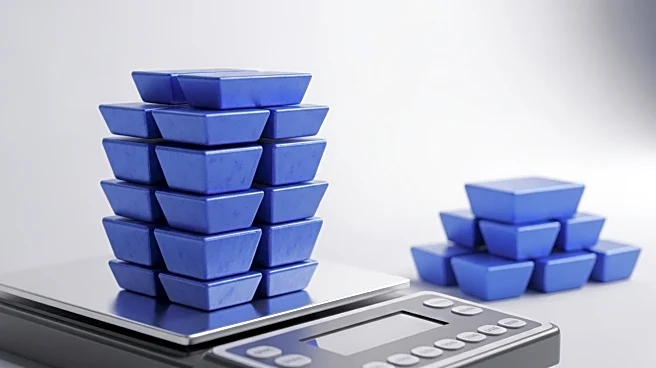What is the story about?
What's Happening?
The Democratic Republic of Congo is set to implement a new policy that allocates annual cobalt export quotas based on companies' production and shipment data from the previous three years. This policy shift aims to regulate supply from the world's leading cobalt producer and follows a months-long export suspension that affected global supply chains. The quota system, effective October 16, is expected to stabilize cobalt prices, which have rebounded significantly since the suspension. The policy is supported by major producers like Glencore but opposed by others such as CMOC. The system excludes artisanal miners and focuses on enhancing transparency and traceability in the sector.
Why It's Important?
Congo's decision to tie cobalt export quotas to historical data is significant for the global cobalt market, which is crucial for electric vehicle batteries, smartphones, and defense systems. As Congo accounts for over 70% of global cobalt output, its regulatory changes can influence global prices and supply stability. The policy aims to prevent market disruptions and ensure fair competition among producers. The move is expected to boost Congo's cobalt revenue, benefiting the national economy. However, it may also challenge smaller producers who must navigate new permit requirements, potentially affecting their market participation.
What's Next?
The implementation of the quota system is expected to resume exports, generating substantial revenue for Congo. Authorities plan to strengthen controls at laboratories and loading sites to ensure compliance and prevent evasion. The policy may lead to increased scrutiny and adjustments in the operations of major cobalt producers. Additionally, the ongoing conflict in eastern Congo and the failure to sign a peace accord with Rwanda could impact the stability and attractiveness of the region for investors, potentially influencing future policy decisions.

















